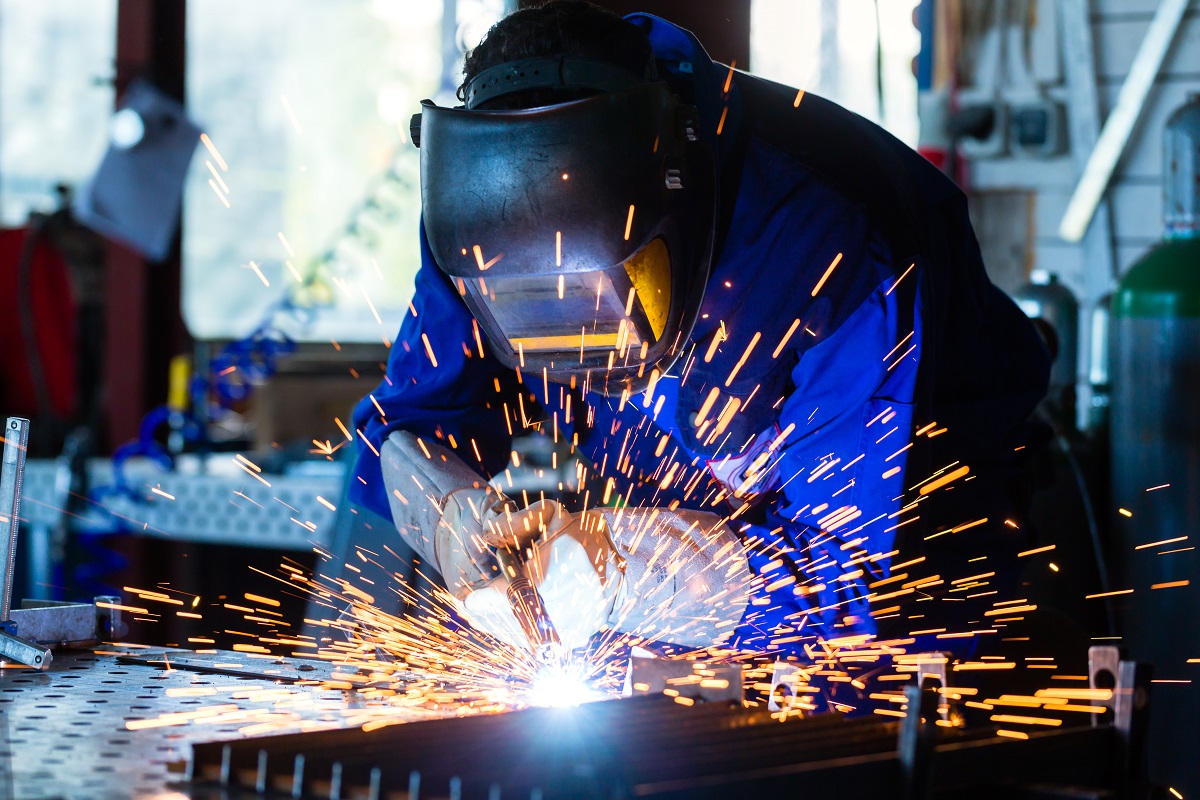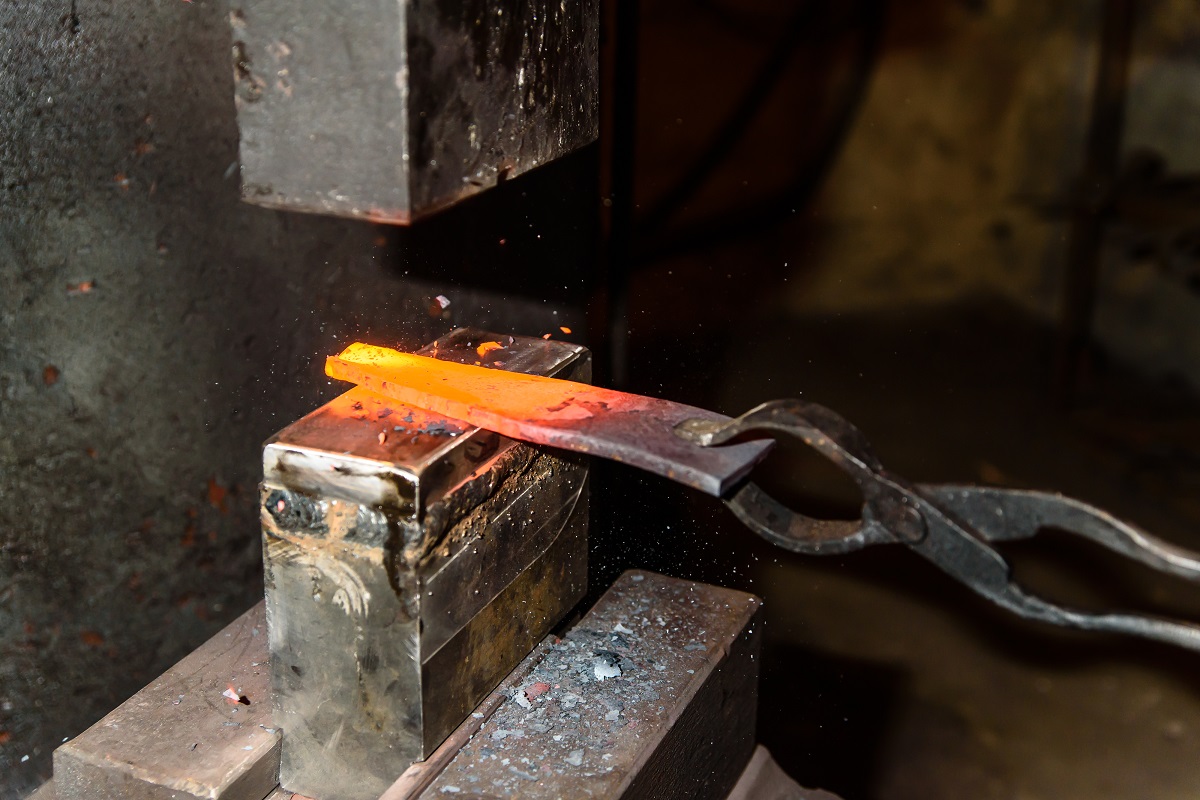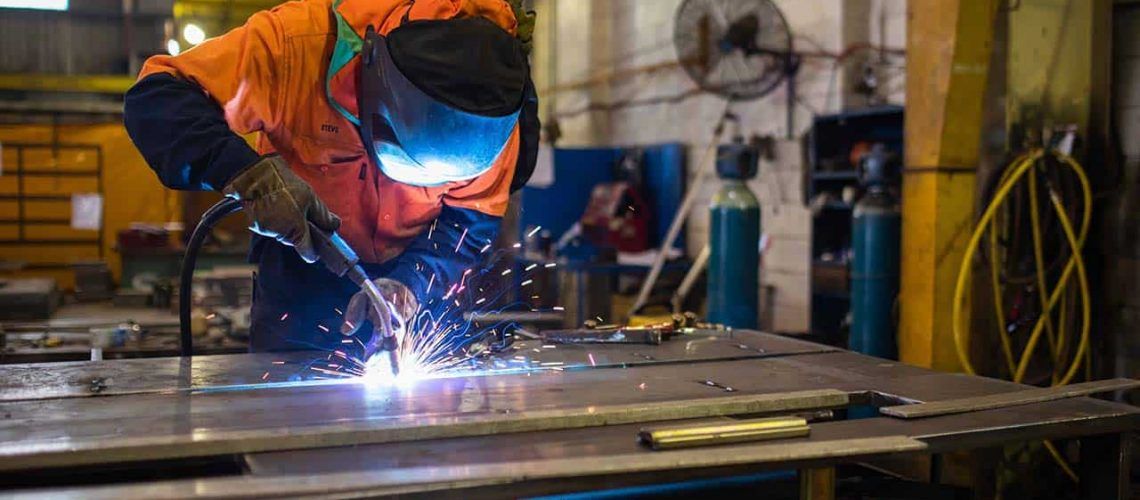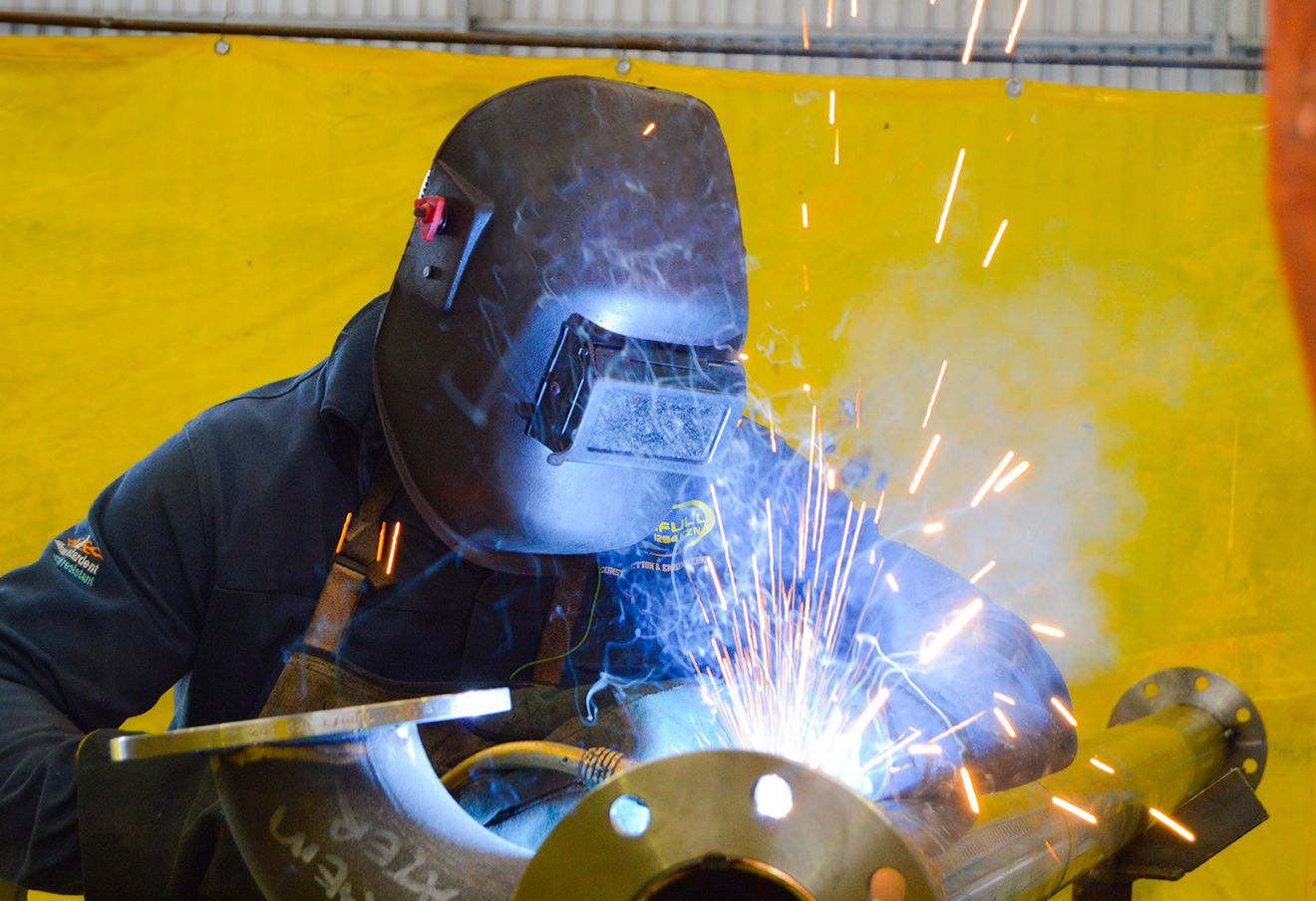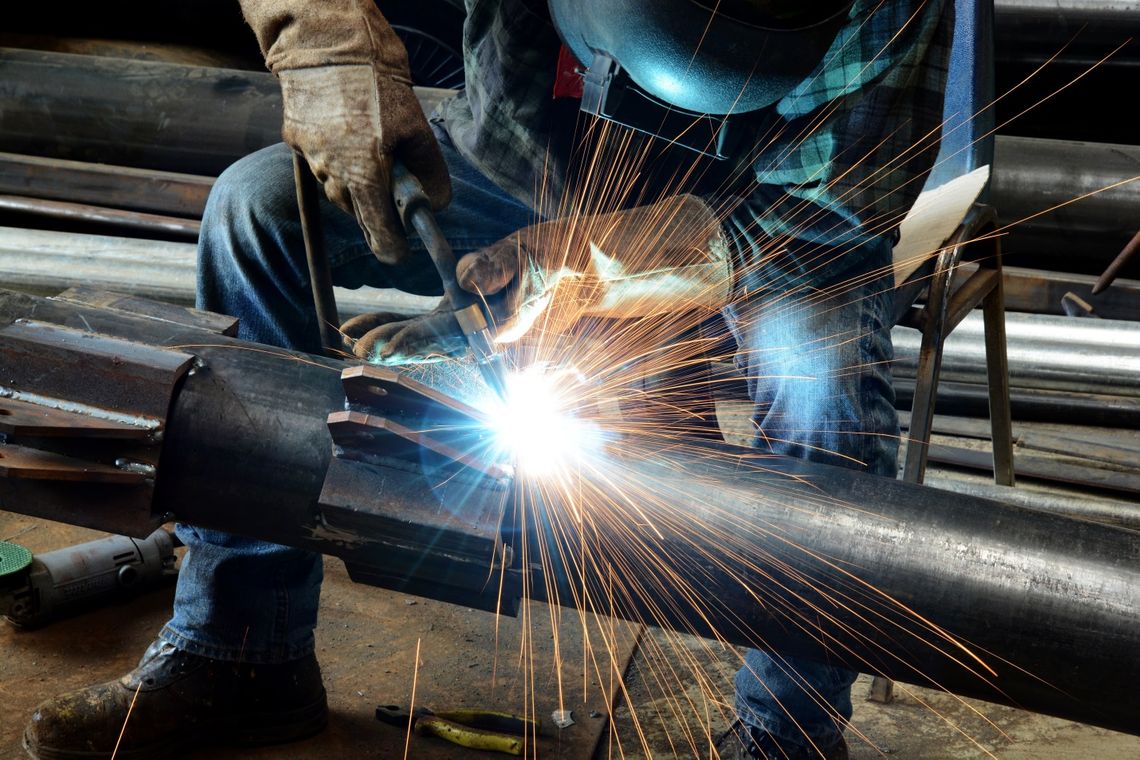
Metal fabrication, the art and science of working with metals to create a wide range of products and structures, is a field that has long been an essential backbone of various industries. From constructing skyscrapers to crafting intricate works of art, metal fabricators play a crucial role in our modern world. But is metal fabrications a good career path? In this article, we'll delve into the world of metal fabrication to help you determine whether it is indeed a good careerpath worth pursuing.
What Is Metal Fabrication And Meaning?
Metal fabrication refers to the process of creating metal structures or components by cutting, bending, and assembling various metal materials. This versatile and fundamental industrial process involves transforming raw metal materials into finished products used in a wide range of applications, from small consumer goods to large industrial machinery and infrastructure.
Metal fabrication typically includes several key steps:
- Cutting -This involves the initial separation of the metal material into the desired shape or size. Cutting can be done using various methods, such as sawing, shearing, or using high-precision technologies like laser cutting and plasma cutting.
- Bending - To give the metal its desired form, it is bent or shaped using methods like press brakes or rollers. This step is crucial for creating components with specific angles or curves.
- Assembling -Metal parts are joined together through welding, fastening, or adhesives to create the final product. Welding, in particular, is a common method for securely connecting metal pieces.
- Finishing -The fabricated metal components may undergo finishing processes like sanding, painting, or coating to enhance their appearance, durability, or resistance to corrosion.
- Quality Control -Ensuring that the finished products meet specified standards and requirements is a vital part of metal fabrication. This can include inspections, testing, and quality assurance procedures.
Metal fabrication is a critical industry that serves as the backbone for various sectors, including construction, manufacturing, aerospace, automotive, and more. The products of metal fabrication can range from simple items like brackets and fasteners to complex structures like bridges, machinery, and architectural elements. Skilled professionals known as metal fabricators or metalworkers play a key role in this process, using their expertise to bring designs and engineering specifications to life using various metal materials such as steel, aluminum, copper, and more.
Why Choose A Career In Metal Fabrication?
Choosing a career in metal fabrication can be a rewarding and fulfilling choice for several reasons:
- Job Opportunities and Demand -The metal fabrication industry has a consistent demand for skilled professionals. As metal is a fundamental material in various industries, including construction, manufacturing, automotive, and aerospace, there are always opportunities for employment.
- Job Security -The stability of the metal fabrication industry means that job security is relatively high. Regardless of economic fluctuations, there will always be a need for metal fabricators, which can provide peace of mind in your career.
- Career Advancement -Within the field of metal fabrication, there are numerous opportunities for career advancement. Starting as an entry-level fabricator, you can progress to roles like a certified welder, quality control inspector, or even a supervisor or manager with the right experience and education.
- Job Satisfaction -Many individuals find great satisfaction in working with their hands and seeing tangible results. Metal fabrication allows you to take raw materials and transform them into functional structures or beautiful pieces of art, providing a unique sense of accomplishment.
- Skill Development -Metal fabrication offers continual opportunities for skill development. You can expand your knowledge by learning new welding techniques, working with different metals, and using cutting-edge machinery. As you gain experience, you become more proficient and valuable in your role, making you an asset to employers.
- Income Potential -While earnings in metal fabrication can vary based on factors like experience, location, and specialization, skilled metal fabricators often earn competitive salaries. Specializing in a particular area, such as aerospace welding, can even lead to higher income potential. Additionally, certifications and advanced training can boost your earning potential.
- Entry Requirements -Unlike some careers that require a four-year college degree, many positions in metal fabrication only require a high school diploma or equivalent, along with hands-on training and certification programs. This makes it a more accessible career option for those who want to enter the workforce sooner and with less student debt.
- Diverse Work Environments -Metal fabricators can work in various settings, including workshops, factories, and construction sites. Depending on your preferences, you can choose a work environment that suits you best. Some fabricators may even have the flexibility to work remotely or operate their businesses.
What Is The Difference Between Welding And Metal Fabrication?
Welding and metal fabrication are closely related processes in the metalworking industry, but they serve different roles and involve distinct tasks. Here are the key differences between welding and metal fabrication:
Welding
- Definition -Welding is the process of joining two or more pieces of metal by melting the edges and fusing them together using heat and often a filler material. The goal of welding is to create a strong and permanent bond between the metal pieces.
- Primary Function -Welding is primarily a joining process. It's used to create strong connections between metal components, such as when constructing a steel structure or repairing a broken metal part.
- Skills Needed -Welders need specialized skills in operating welding equipment, understanding different welding techniques, and knowing how towork with various types of metals and filler materials.
- Tools and Equipment -Welding equipment includes welding machines, electrodes, welding rods, and protective gear such as welding helmets and gloves.
- Final Product -Welding is a crucial component of metal fabrication, as it is used to bring together different parts and pieces created during the fabrication process.
Metal Fabrication
- Definition -Metal fabrication is the process of shaping, cutting, bending, and assembling metal materials to create various products and structures. Fabrication involves working with raw metal and transforming it into finished components or entire products.
- Primary Function -Metal fabrication focuses on the creation and assembly of metal structures and components. This can include everything from small brackets and panels to entire frameworks for buildings or machinery.
- Skills Needed -Metal fabricators require a range of skills, including cutting, bending, shaping, assembling, and even welding. They need to be proficient in working with various metals and often use blueprints and engineering drawings to create their products.
- Tools and Equipment -Metal fabrication involves a wide array of tools and machinery, such as shears, press brakes, laser cutters, and welding equipment, among others.
- Final Product -The end result of metal fabrication is a finished product or component that may require welding to join various pieces, but it's not solely about welding. It encompasses the entire process of turning raw metal into useful items.
What Do People Working In Metal Fabrication Do?
People working in metal fabrication, often referred to as metal fabricators or metalworkers, perform a wide range of tasks related to the shaping, cutting, and assembly of metal materials to create various products and structures. Their work can vary significantly based on the specific industry they are in and the types of products they are producing. Here are some common tasks and responsibilities of individuals working in metal fabrication:
- Cutting -Metal fabricators use various cutting tools and techniques to shape metal into the desired sizes and shapes. This may involve using saws, shears, laser cutters, plasma cutters, or water jet cutters.
- Bending and Shaping -Metal materials are often bent or shaped to create specific angles, curves, or forms. Press brakes, rollers, and other machinery are used for this purpose.
- Welding -Welding is a crucial part of metal fabrication. Fabricators use welding techniques to join different metal pieces securely. This can include MIG welding, TIG welding, arc welding, and more.
- Assembling -Metal fabricators assemble the various cut and shaped metal components to create the final product. This may involve using fasteners, adhesives, or welding.
- Reading Blueprints -Metal fabricators must interpret engineering drawings and blueprints to understand the specifications and dimensions required for a particular project.
- Quality Control -Ensuring that the fabricated components meet specific standards and quality requirements is essential. Fabricators may perform inspections, measurements, and testing to maintain quality control.
- Finishing -After assembly, some fabricated products may require finishing touches, such as sanding, polishing, or painting, to enhance their appearance or provide protection against corrosion.
- Machine Operation -Metal fabricators operate a variety of machines, including CNC (Computer Numerical Control) machines, to create precise cuts and shapes.
- Material Selection -Choosing the appropriate type of metal material for a project is important. Metal fabricators need to consider factors like strength, durability, and corrosion resistance.
- Safety Measures -Safety is paramount in metal fabrication. Fabricators must wear appropriate protective gear, follow safety protocols, and ensure the safety of their work environment.
- Problem Solving - Metal fabricators often encounter challenges or unexpected issues during the fabrication process. Problem-solving skills are valuable for finding efficient solutions.
- Customization -Many metal fabricators work on custom projects, creating unique products tailored to specific client requirements. This involves understanding and meeting individual customer needs.
- Communication -Effective communication is essential, especially when working on complex projects that require collaboration with engineers, designers, and other professionals.
Is Metal Fabrications A Good Career Path?
Yes, making things out of metal is a great job! Metal workers have a lot of job opportunities, get paid well, and work in a safe field. There are, however, many things you should think about before you choose this area of work.
There are a lot of great job possibilities in the metal industry. For people who like to work with their hands and are motivated by results, metal fabrication is a great choice. A creative job is also a great choice for those who want to do it. This job is perfect for you if you are good at welding and really care about your job.
How Much Money Can One Make From Metal Fabrications?
The income in the field of metal fabrication can vary widely based on several factors, including your experience, location, specialization, and the specific employer or industry you work in. Here's a general overview of income potential in metal fabrication:
- Entry-Level Positions -If you're starting as an entry-level metal fabricator, you can typically expect a more modest income. Salaries for beginners may range from minimum wage to around $15-20 per hour. These positions often involve basic welding and cutting tasks.
- Skilled Metal Fabricators -As you gain experience and expertise in metal fabrication, your earning potential increases. Skilled metal fabricators who can handle more complex tasks and work independently often earn a higher income. Their salaries can range from $20 to $30 per hour or more, depending on factors such as location and the demand for their skills.
- Certified Welders -Welders who obtain certifications and specialize in welding techniques can command even higher incomes. Certified welders may earn anywhere from $25 to $40 or more per hour, depending on their level of expertise, the type of welding they perform, and the industry they work in.
What Kind Of Skills Are Necessary To Get Started In The Metal Fabrication Industry?
Getting started in the metal fabrication industry requires a combination of technical skills, knowledge, and personal qualities. Here are some essential skills and attributes that can help you succeed in this field:
- Welding Skills -Welding is a fundamental skill in metal fabrication. You should be proficient in various welding techniques, including MIG, TIG, arc, and oxyacetylene welding. Being a certified welder can be a significant advantage.
- Cutting Skills -Metal fabricators need to cut metal materials accurately. Familiarity with tools such as saws, shears, laser cutters, and plasma cutters is essential.
- Blueprint Reading -Understanding engineering drawings, blueprints, and technical specifications is crucial for translating design plans into physical components accurately.
- Mathematics and Measurement -Strong math skills, including the ability to perform precise measurements and calculations, are necessary to ensure components meet specific size and tolerance requirements.
- Safety Awareness -Safety is a top priority in metal fabrication. You must be knowledgeable about safety procedures, equipment, and the use of personal protective gear.
- Hand-Eye Coordination -Working with precision and attention to detail is vital, as even minor errors can affect the quality of the final product.
- Problem-Solving Skills -Metal fabrication often involves overcoming challenges and unexpected issues. The ability to think critically and find efficient solutions is essential.
- Material Knowledge -Understanding the properties and characteristics of different metals, such as steel, aluminum, and copper, is important for selecting the right material for a project.
- Machine Operation -Proficiency in operating various machinery, including press brakes, rollers, shears, and CNC machines, is crucial to shaping and forming metal accurately.
- Technical Knowledge -Staying updated on the latest industry technologies, equipment, and techniques is important to remain competitive and relevant in the field.
- Communication Skills -Effective communication with team members, engineers, designers, and clients is necessary for understanding project requirements and ensuring successful outcomes.
- Physical Stamina -Metal fabrication can be physically demanding. You may need to stand for extended periods, lift heavy materials, and work in various positions. Good physical fitness is beneficial.
- Detail Orientation -Precision and attention to detail are critical in metal fabrication to produce high-quality components and avoid costly errors.
- Teamwork -Many projects in metal fabrication require collaboration with others. Being able to work effectively as part of a team is important.
- Adaptability -The ability to adapt to new challenges, materials, and techniques is important in this evolving field.
- Problem Solving- Fabricators often face unique challenges in each project. Being able to think creatively and find solutions is a valuable skill.
High Paying Jobs In Metal Fabrications
In the field of metal fabrication, there are several high-paying job opportunities for individuals with advanced skills, experience, and expertise. Here are some high-paying jobs in metal fabrications:
- Certified Welding Inspector (CWI) -Certified Welding Inspectors are responsible for ensuring that welds meet industry and quality standards. They inspect and certify welds for structural integrity and quality, making sure they adhere to specifications and codes. CWIs often earn competitive salaries due to their critical role in maintaining safety and quality standards.
- Aerospace Welder -Welders working in the aerospace industry often earn higher wages due to the stringent quality and safety requirements in this sector. Aerospace welders are responsible for creating and maintaining components for aircraft and spacecraft, where precision and quality are of utmost importance.
- Pipe Welder -Pipe welders specialize in welding pipes used in various industries, including oil and gas, construction, and power generation. Their expertise in welding intricate and often high-pressure pipe systems can lead to higher pay.
- Underwater Welder -Underwater welders work in challenging and hazardous environments, often repairing and maintaining structures beneath water, such as offshore oil rigs and bridges. Due to the unique skills and risks involved in this field, underwater welders can command high salaries.
- Robotic Welding Technician -Robotic welding technicians are responsible for programming, operating, and maintaining automated welding systems. As automation becomes more prevalent in manufacturing, technicians who can manage robotic welding equipment are in demand and can earn higher wages.
- Aluminum Welder -Specializing in welding aluminum, a material commonly used in aerospace, marine, and automotive industries, can lead to higher pay. Aluminum welders must possess specific skills and knowledge to work with this metal effectively.
- Structural Steel Fabricator - Fabricating large steel structures, such as buildings and bridges, requires advanced skills and knowledge. Structural steel fabricators often earn competitive wages due to the complexity and safety standards involved in this work.
- Nuclear Welder -Welders working on nuclear projects must meet rigorous safety and quality standards. The sensitive nature of nuclear work often leads to higher compensation for those with the required expertise.
- Custom Metal Fabricator -Creating one-of-a-kind, high-end metal products, such as custom sculptures or architectural elements, can be financially rewarding. Clients are willing to pay top dollar for unique and aesthetically pleasing metalwork.
- Supervisor or Manager Roles -As you gain experience and leadershipskills, moving into supervisory or managerial roles in metal fabrication can significantly increase your earning potential. These positions involve overseeing projects, managing teams, and ensuring the efficiency of operations.
What Are The Advantages And Disadvantages Of Metal Fabrications Working?
Working in the field of metal fabrication offers several advantages, but it also comes with some challenges and potential disadvantages. Here's an overview of both the advantages and disadvantages of metal fabrication work:
Advantages
- Job Opportunities -The metal fabrication industry has a consistent demand for skilled professionals, ensuring a wide range of job opportunities.
- Job Security -Metal fabrication offers job security because the demand for metal products remains steady, even during economic fluctuations.
- Skill Development -Metal fabricators have continuous opportunities to expand their skills and knowledge, including learning new welding techniques, working with different metals, and using advanced machinery.
- Career Advancement -There are various opportunities for career advancement within the field, with the potential to progress to supervisory or managerial roles.
- Job Satisfaction -Creating tangible products from raw materials can be highly fulfilling and provide a sense of accomplishment.
- Competitive Income -Skilled metal fabricators can earn competitive salaries, with the potential for higher earnings through specialization and certification.
- Accessibility -Many positions in metal fabrication do not require a four-year college degree, making it an accessible career choice for those who want to enter the workforce sooner.
Disadvantages
- Physical Demands -Metal fabrication can be physically demanding, involving long periods of standing, lifting heavy materials, and working in uncomfortable positions.
- Safety Risks -The use of heavy machinery and potentially hazardous materials, such as welding equipment, poses safety risks. Adherence to safety protocols and the use of personal protective gear are essential.
- Environmental Factors -Fabrication shops may have challenging working conditions due to factors like heat, noise, and exposure to fumes or chemicals.
- Inconsistent Hours -Depending on the employer and the specific projects, metal fabricators may experience irregular work hours, including overtime or shifts outside of traditional working hours.
- Specialization and Training -Achieving higher-paying roles may require specialized training and certifications, which can involve additional time and financial investment.
- Continuous Learning -Staying up-to-date with the latest technology, materials, and techniques is necessary in this evolving field, which may require ongoing education and training.
- Physical and Mental Stress -The demanding nature of metal fabrication work can lead to physical strain and mental stress, especially when working on complex or high-stakes projects.
- Work Conditions -The working conditions can be less than ideal, particularly in small or older fabrication shops that may lack modern amenities.
People Also Ask
What Education Is Needed For A Career In Metal Fabrication?
Most entry-level positions in metal fabrication require a high school diploma or equivalent. Additional vocational training or apprenticeships are common paths to gaining the necessary skills.
How Much Does A Metal Fabricator Make?
The income of a metal fabricator varies based on factors such as experience, location, specialization, and the industry. Entry-level fabricators may earn around $15-20 per hour, while experienced or certified welders can make $25-40 per hour or more.
What Is The Job Outlook For Metal Fabrication Careers?
The job outlook for metal fabrication careers is stable. The demand for skilled metal fabricators remains consistent across various industries, offering job security and opportunities for advancement.
Is Welding A Separate Career From Metal Fabrication?
Welding is a specialized skill within the metal fabrication field. While many metal fabricators are skilled welders, metal fabrication encompasses a broader range of tasks, including cutting, bending, shaping, and assembling metal materials.
What Are The Potential Hazards In A Metal Fabrication Career?
Metal fabrication can involve safety risks, including exposure to welding fumes, heavy machinery operation, and the potential for injuries from sharp or hot metal. Adhering to safety protocols and using protective gear is crucial to mitigate these risks.
Conclusion
A career in metal fabrication presents a world of opportunity for those who are passionate about creating, shaping, and constructing with metal. As we've explored, it offers job stability, career advancement, and the satisfaction of seeing your work turn into tangible results. The chance to continually develop your skills, coupled with competitive earning potential, makes this profession an attractive choice for many.
Whether you're an aspiring craftsperson or someone considering a career shift, metal fabrication is a path that combines artistry, engineering, and job security into one fulfilling package. So, if you have a knack for craftsmanship and a desire to build the future, metal fabrication may be the perfect career path for you.
